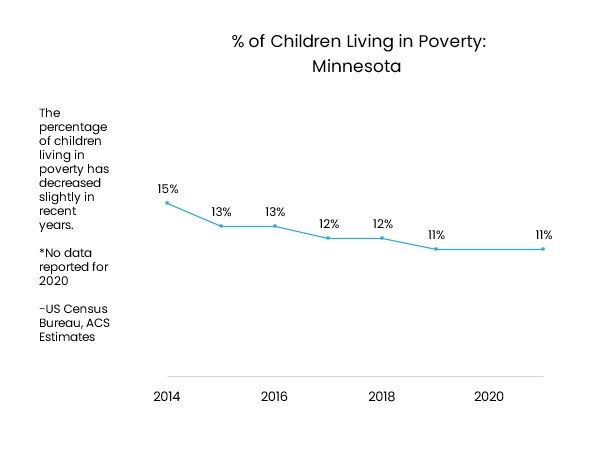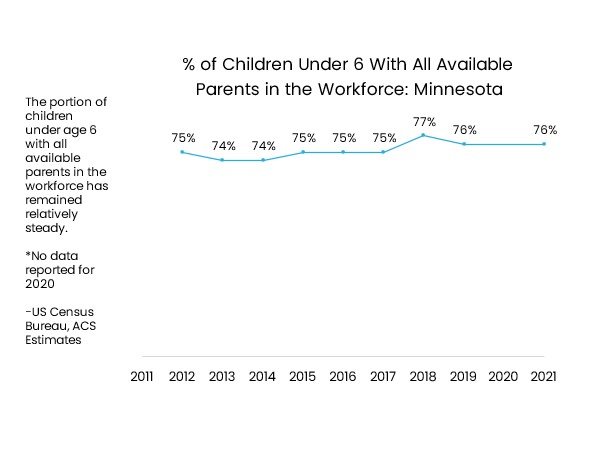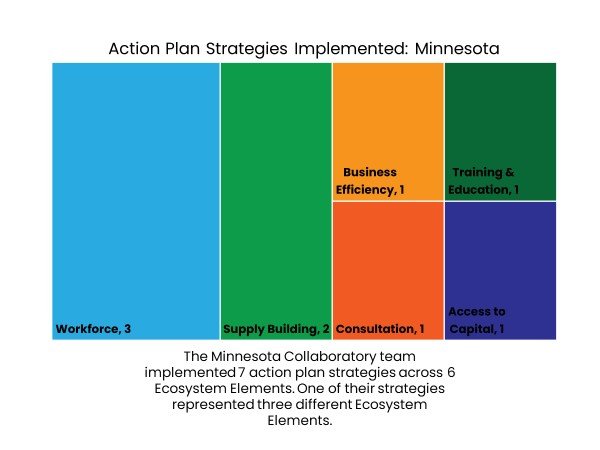Implementation Phase
TEAM RESOURCES HOME | ECOSYSTEM ESSENTIAL ELEMENTS: IN FOCUS | PAST TRAININGS | PUBLICATIONS | BLOG | TEAM DIRECTORY

Minnesota implemented seven action plan strategies to support child care business sustainability efforts including a One-Stop Shop for new child care businesses. Minnesota’s Collaboratory team is represented by four entities: the Department of Human Services, the Department of Education, the Department of Employment and Economic Development, and Minnesota’s Children’s Cabinet.
Minnesota Develops One-Stop Shop for Providing Start-up Information from Multiple State and Local Agencies
-
Providers throughout Minnesota shared that they felt overwhelmed and did not know who to contact to access complex and siloed resources as they started or scaled their child care businesses and became licensed. Each provider enters the system at different points and requires differing levels of support. Currently, there are many supports but a broker is needed to find correct, available resources. Work is siloed geographically, although some county associations are good at connecting the dots. There are also statewide associations but not all providers are members.
-
The One-Stop Shop was developed to increase the efficiency of serving child care businesses and eliminate child care businesses from failing to launch/open due to delays in licensing. The Legislature enacted the One-Stop Shop in 2021, and the team is putting together a position description to hire a full-time lead. The concept was defined in the legislation and developed by the Child Care Action Team before the pandemic. The legislation intends to create better networks for providers, so they can find answers. Through this project, providers will gain access to local and state resources. The team is developing strategies aimed at streamlining services and creating a platform for internal and external partners to regularly connect and convene.
-
The need for cross-agency coordination is crucial. Assessing the resources available to providers across agencies has been valuable. Diverse perspectives have enhanced the efficiency and effectiveness of the work. Being cognizant of the expertise involved in the planning efforts was critical.
-
Ensuring sufficient capacity to implement the project exists will be critical. The work was set up so quickly, and there wasn’t sufficient time to develop a case management system. The system was intended to capture metrics such as provider and program information, type of assistance provided, licensing process details, obstacles incurred, etc. The collected information would be used to support process and quality improvement.
-
Providers feel more supported using resources from the One-Stop Shop. The team learned about opportunities to target needs through the usage of data tools. The Department of Employment and Economic Development plans to conduct research on the “state of the state” to provide context around the impact of this project. The team is also interested in school districts providing support for wrap-around care (Head Start).
-
*Collected Testimonials
To learn more about Minnesota’s one-stop for child providers, please visit this link: https://www.childcarewayfinder.org/






